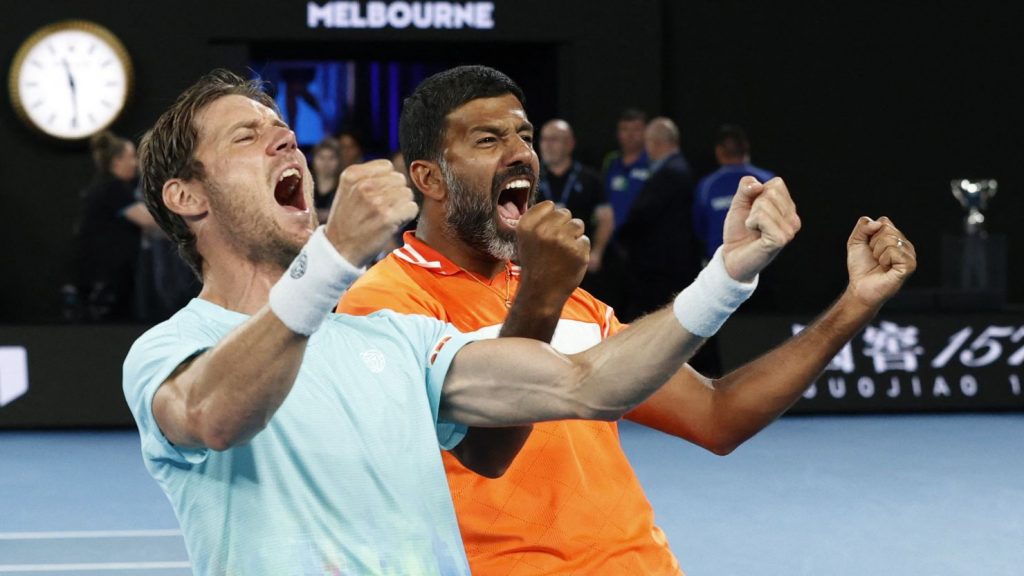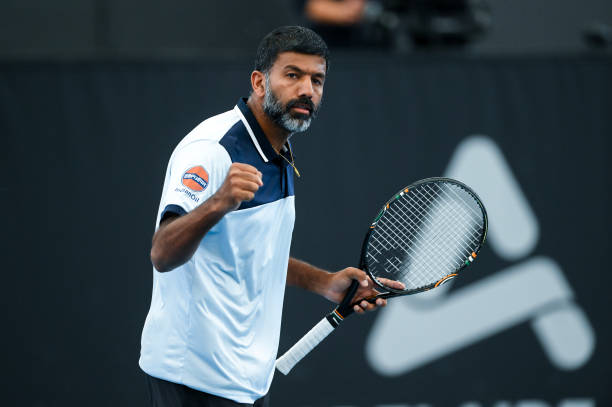At the Australian Open 2024, Rohan Bopanna, aged 43, made history as the oldest man to win a Grand Slam, capturing the men’s doubles title. This landmark victory not only shatters previous age records but also highlights the evolving landscape of tennis, proving that peak performance can extend well beyond traditional athletic prime years.
Breaking age barriers: Men’s singles final Australian Open time
Before his remarkable win at the 2024 Australian Open, Rohan Bopanna had come close to Grand Slam glory but never clinched a men’s doubles title. His triumph not only marks a personal milestone but also sets a new benchmark in the Open Era:
- Jean-Julien Rojer previously held the record as the oldest Grand Slam winner in the men’s doubles category. At 40 years and nine months, he won the 2022 French Open.
- The legendary Martina Navratilova remains the oldest Grand Slam champion across all categories, winning the 2006 US Open mixed doubles at 49 years and 10 months.
Bopanna’s victory, therefore, not only elevates him within an elite group of senior champions but also underscores the possibilities for longevity in professional sports.
Pivotal moments in the Australian Open 2024 doubles final
First Set Standoff. In the intensely competitive first set of the Australian Open 2024 men’s doubles final, both pairs, Rohan Bopanna and Matthew Ebden versus Simone Bolelli and Andrea Vavassori, held their serves with remarkable tenacity. Despite opportunities on both sides—Bopanna and Ebden missing break points in the second and fourth games and the Italian duo failing to capitalize in the eleventh—the set ended in a deadlock at 6-all. The Indo-Australian pair then surged ahead in the tie-breaker, showcasing their resilience under pressure.
Decisive break and victory
As the match progressed into the second set, the tension escalated with both teams maintaining strong service games. The scoreboard read 5-5, hinting at another potential tie-breaker. However, Bopanna’s exceptional return game at this critical juncture led to the first and only break of the match against Vavassori’s serve. With the advantage in hand, Ebden served out the match, securing their victory with a final score of 7(7)-6(0), 7-5. This win marked Bopanna’s inaugural Grand Slam title in men’s doubles, adding a significant milestone to his career.

Rohan Bopanna’s historic Grand Slam Win: A milestone for Indian tennis
Rohan Bopanna’s triumph at the Australian Open 2024 transcends a personal milestone, marking a historic moment for Indian tennis. At 43, his victory as the oldest man to win a Grand Slam not only shatters age barriers but also brings a resurgence of attention and inspiration to tennis in India. His ascent to the top of the ATP doubles rankings as a result of this win serves as a testament to his enduring skill and determination. This victory at Melbourne Park was his second Grand Slam title, the first in men’s doubles, following his 2017 French Open mixed doubles win with Canada’s Gabriela Dabrowski. That earlier success at Roland Garros was notably the last time an Indian won a tennis major, making his recent win even more significant for Indian tennis. This adds a prestigious title to his career and enhances the visibility and viability of sustained competitive sportsmanship at an advanced age in professional tennis.
Age defied: Who won men’s doubles Australian Open
Rohan Bopanna’s victory at the Australian Open 2024 as the oldest man to win a Grand Slam stands as a profound testament to the potential within senior athletes and has broad implications for the sport:
- Breaking age norms: Sets a precedent that age is but a number in high-level competitive tennis.
- Inspiring future generations: Demonstrates to upcoming players in doubles tennis that longevity and success can coexist, influencing training and career planning strategies.
- Evolving game dynamics: Suggests a shift in how doubles tennis might be approached, focusing on experience and strategic play over mere physical agility.
These reflections underscore a pivotal moment in tennis history, showing that milestones can be achieved at any stage of an athlete’s career.

Recent Comments